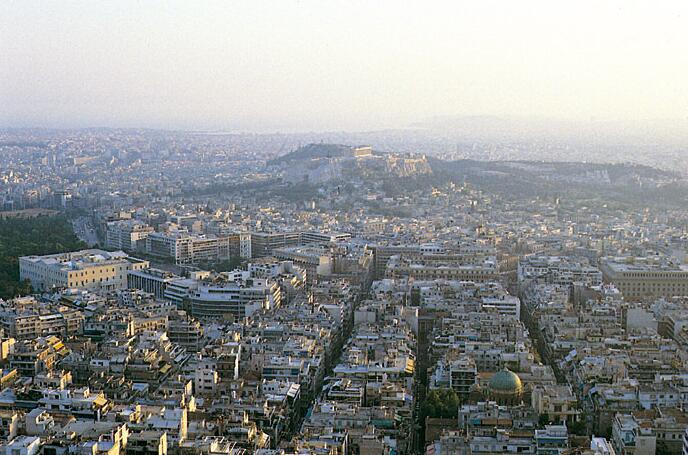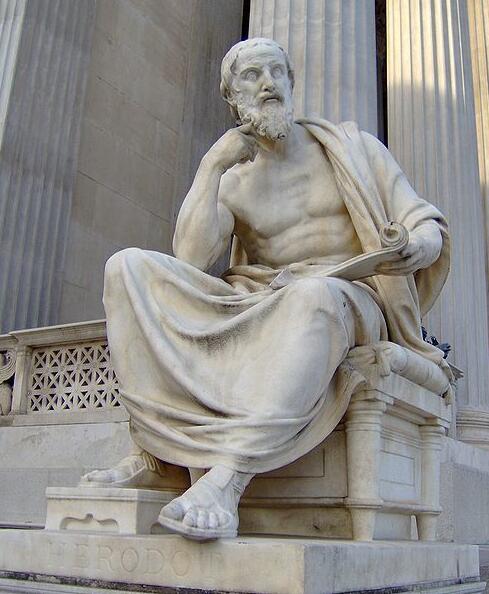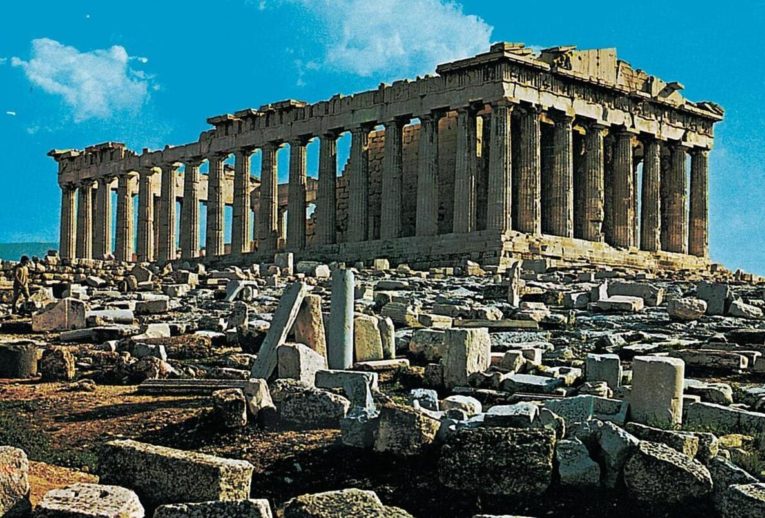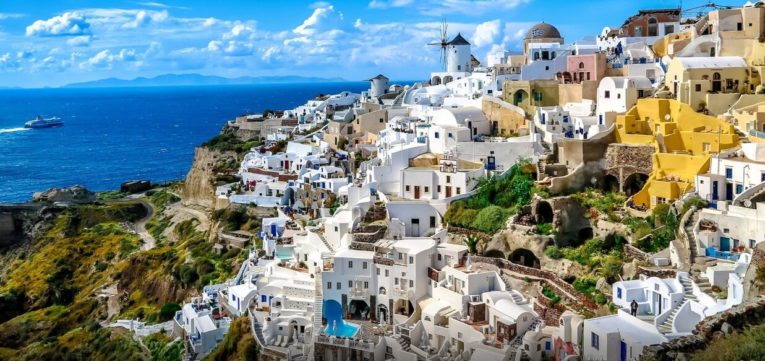Greece is a republic in southern Europe, on the southernmost part of the Balkan Peninsula. Besides mainland Greece includes the Ionian Islands, Crete and most of the Aegean islands. The country borders northwest to Albania, north to northern Macedonia and Bulgaria and east to Turkey.
Greece was once the leading cultural area in Europe. Later came a long period of isolation, poverty and foreign rule. Even after the country became independent in 1832, it would take over 100 years to reach its present extent.
The country’s history after independence is characterized by difficulties and turmoil in both domestic and foreign policy. Relations with neighboring Turkey have traditionally been tense. The country joined the EU (EC) in 1981 and has since experienced strong economic growth. However, in 2009, the country went into recession as a result of the international financial crisis, and in 2010 the Greek debt crisis started.
The Republic of Greece has a population of 10,815,197 inhabitants (2011). The capital is Athens.
The name. The origin is unknown. Although it was originally used only on a smaller area of Thessalia, Greece covered as a geographical indication from classical times about present-day Greece (except Macedonia and Thrace ). In a more comprehensive sense, Greece designated the entire Greek world, including the Greek settlements around the Black Sea and in Sicily and southern Italy, by ancient Greeks called Greater Greece.
Greece’s national anthem is Y mnos is tin eleftherian (“Hymn to Freedom”).
Athens seen west from Lykabettos. To the left is the Parliament building at Syntagma Square. In the middle lies the Acropolis, and in the distance part of the harbor and the Mediterranean can be seen.
People and society
Greece has a population of around 10.8 million (2011). Emigration, especially post-emigration to the industrialized countries of Western Europe and to the United States, Canada, Australia and other countries, has helped to keep population growth at a relatively low level.
In recent years, the country has received immigrants from former Eastern Bloc countries and Soviet republics, especially Albania, and is the transit country for most of the illegal immigration to Europe. About half a million illegal immigrants are expected to reside in the country. Greece does not recognize any ethnic minorities, and there are no official statistics on minority groups.
The official language and mother tongue of the vast majority of the population is Greek. Since 1976, it is the official vernacular form called dimotiki which is the official language. There are smaller groups that speak Turkish and Romani, while other linguistic minorities such as Albanian (Arvanitic), Macedonian and Romanian (Makedo-Romanian or Aromunic) are disappearing because of assimilation.
90 percent of the population confess to the Orthodox Church, two percent are Muslims (most Turkish Muslims in Thrace), under one percent Catholics and three percent other Christians. The Greek state recognizes the Orthodox Church as the “dominant” religion in the country, but guarantees religious freedom. The Church of Greece (Ekklisia tis Ellados) is independent (autocephalous) and is led by the Archbishop of Athens.
State and politics
Following the 1975 Constitution, with amendments by 2008, Greece is a parliamentary-democratic and unified state republic. The country has been a member of the EU since 1981 and held the presidency of the EU in the first half of 2014.
Legislative power has been added to a parliament, Vouli, with up to 300 members, elected in the general election for four years. The government is headed by a prime minister, who assumes and is accountable to parliament. The head of state is a president, elected by parliament for five years. After democracy was reinstated in 1974, and up to the 2012 parliamentary elections, political life in Greece functioned in practice as a two-party system between the Liberal Conservative Party New Democracy and the Social Democratic Pan-Socialist Movement (PASOK ).
After the Greek financial crisis broke out in 2010, support for the two established parties fell dramatically. Since 2012, Greece has been ruled by coalition governments, while the right-wing party Golden Dawn has had a support of just under 7 percent. After Parliament failed to elect a new president, a new parliamentary election was held in January 2015. The left-wing party SYRIZA gained the most votes and formed a coalition government with the Conservative party Independent Greeks, with Alexis Tsipras as the new prime minister. Greece’s president of March 2015 is Prokopis Pavlopoulos.
Tsipras’ year as prime minister has been marked by negotiations on the loan and reform program with the European Union (EU), the European Central Bank (ESB) and the International Monetary Fund (IMF). In June 2015, he left the negotiations and announced a referendum on the loan agreement. The referendum was held on July 5 and resulted in over 61 percent of Greeks saying no to the agreement.
Despite the outcome of the referendum, the Tsipras government signed a 3-year loan agreement with European authorities with even more stringent conditions than had been voted down by voters. This has reduced the support around Tsipras and SYRIZA. During the European parliamentary and municipal elections in May 2019, New democracy gained the most votes, while Tsipras announced new parliamentary elections on July 7, 2019 due to the low turnout around his party.
Following the Kallikratis reform in 2011, Greece is administratively divided into 13 regions, including Athens, with 325 municipalities. The former 54 counties are largely retained as subunits in the regions. In addition, there is an autonomous area, Mount Athos.
Greece is a member of NATO. There is general military duty for men and voluntary service for women over the age of 18. Furthermore, Greece is a member of the UN and the UN’s special organizations, including the World Bank; and including the World Trade Organization.
Relations with neighboring Turkey have traditionally been tense, and have been characterized by the conflict in Cyprus and questions about sovereignty over the continental shelf in the Aegean.
History
Herodotus wrote down much of the history of Greek antiquity, and he was afterwards nicknamed “the father of history”. Sculpture of Herodotus, here outside the parliament in Vienna, Austria.
The history of the Greek-speaking people goes back to about 1600 BCE. The Greek antiquity extends from 800 BCE. to 395 AD and was a period of political, philosophical, artistic and scientific innovations that constitute a cultural heritage that has exercised fundamental influence on Western civilization. Monuments from this time constitute Greece’s most important tourist attractions.
The Greek territories were eventually incorporated into the Byzantine Empire, where Greek language and culture flourished in a Christian context. Gradually these areas were conquered by the Ottomans, with the fall of Constantinople in 1453 as a milestone. For about 400 years during the Ottoman Empire, the Greeks were isolated from Western Europe and experienced cultural decline.
After a war of freedom against the Ottoman Empire, in 1832 Greece was recognized as an independent state. The country’s independent history is characterized by difficulties in both domestic and foreign policy matters. A number of emigration waves have created a large Greek diaspora around the world. The liberation from the German occupation in 1944 was followed by riots and civil war that lasted from 1946 to 1949. A military junta seized power in the country in 1967 and retained it until 1974. Following the reintroduction of democracy, Greece was declared a republic by referendum.
Greece has in recent years experienced economic growth and political stability with integration into the EU. However, the financial crisis that erupted in 2009 has set the country back and led to a severe debt crisis and radicalized political life. Following the upheaval in the Balkans, Greece has been given a greater role in this region, especially economically.
Economy and business
Greece’s economy is classified as advanced, and with gross domestic product of € 185 million in 2018, it is considered the 50th largest in the world. The Greek economy developed rapidly after World War II, but has remained one of the least developed in the EU, ranked 17th among the 28 member countries. The country has limited natural resources and industrialization has been slow, as well as the country struggling to pay off debt. Shipping, tourism and money transfers from emigrated Greeks (the latter has steadily declined) are the mainstays of the economy.
Although the Greek economy has traditionally been based on free competition, governments over the years have established state ownership and control in many sectors. In the 21st century, partly in response to external pressure, there is a tendency for privatization.
In 2001, Greece entered the euro zone and took the euro as its currency. The euro replaced the Greek drachma.
Around a quarter of the workers are unionized. In the public sector, unions have considerable power, although fragmented and heavily politicized, while in the private sector they are weak.
The Greek economy is mainly about the service sector, which accounts for about 80 percent of the country’s gross domestic product, while industry accounts for 15 percent and agriculture accounts for 4 percent. Important industries are tourism, with Greece ranked as the 14th most visited country in the world with over 27 million visitors, and shipping, where the Greek merchant fleet is the world’s largest. In addition, the country is a major exporter of agricultural products. With the largest economy in the Balkans, Greece is an important investor in the region.
In 2009, the country went into economic recession as a result of the international financial crisis and the government’s inability to cope with growing budget deficits. The poor public economy, lack of reforms and inaccuracies in financial reporting led international credit rating agencies to downgrade Greece’s credit rating, leading the country into economic crisis.
In order to reduce the budget deficits and cover its huge government debt, the country had to adopt strict cuts and reform packages. These constituted conditions for the payment of loans totaling EUR 240 billion from the so-called troika: the EU, the European Central Bank (ECB) and the International Monetary Fund (IMF). Check more acronyms on AbbreviationFinder.org.
In recent years, Greece has begun to move slowly out of the crisis with improvements in gross domestic product and unemployment, and in 2017 budget surpluses were achieved. In 2019, unemployment is 19 percent. Unfinished financial reforms and a massive loan problem still hold back the economy. Different calculations estimate the gray economy, where many fail to report income to escape high taxation, to make up 20-25 percent of GDP.
Knowledge and culture
The school in Greece is compulsory for nine years from the ages of 6 to 15 years. Virtually all education is public and free for all. The primary school is 6 years old, then the children go on to 3-year secondary school.
In Greece, a total of 17 monuments are listed on UNESCO’s list of world heritage sites. Most of these stem from ancient times, as the temples on the Acropolis and the Agora in Athens, Epidavros Theater, Mycenae Castle and Olympia plant on the Peloponnese, Delphi shrines in Parnassos -fjellet, the palace of Knossos on Crete and the island of Delos. Other architectural monuments date from the Byzantine period, such as the Monastery of St. John at Patmos and the city of Mystras at Peloponnese.
Thousands of art objects from these eras can be found in Greek museums and abroad. In the field of visual arts, Greece is especially known for icon painting. Famous Greek artists are the painters El Greco and Giannis Tsarouchis.
Homer’s epic The Iliad and the Odyssey (estimated from 750 BCE) represent the first literary sources in Greek and European history. Literature written in modern Greek dates back to the Late Byzantine period, with works such as the Erotokritos poem by Vitsentzos Kornaros. Greece has two Nobel laureates in literature; the poems Giorgos Seferis and Odysseas Elytis. The best known Greek author internationally is Nikos Kazantzakis.
Greece has a rich music scene, with live folk traditions. The 1930s urban rebetiko genre introduced the bouzouki instrument and made it a Greek feature.
The 1950s and 1960s are considered the golden age of Greek film production. Well-known directors are Michalis Kakogiannis who was behind the film Zorbas, and Theo Angelopoulos. Melina Merkouri achieved international recognition as an actress.
Greece has a number of daily newspapers, Kathimerini, Ta Nea, Ethnos and To Vima are among the leaders. The Greek state broadcasting company is ERT. In addition, a large number of private radio stations and broadcasters operate, the most important being Ant1, Alpha, Skai and Athina 9.84.
Music in Greece
Our knowledge of Greek music between antiquity and the 19th century is mainly confined to church music and folk music. Church music continued to build on the Byzantine heritage, but underwent centuries of change, while regional differences emerged. To achieve one’s practice, a notation reform was introduced by Bishop Chrysantos of Madytos in 1821, which has since been applied throughout the Orthodox Church. This standardized music is called neobysantine.
Folk music has ancient and Byzantine roots. The national anthem, based on distinctive scale types, is mostly unanimous, but against the border with Albania there is also a majority. Common instruments are bouzouki (lute type), zournás (obo type), gaida (bagpipe), various flutes and drums. Of the numerous instruments, several have come through the Turks (who themselves may have developed them from Hellenistic or Byzantine prototypes), but otherwise the influence of the Turks on folk music has been limited.
Art music in Greece grew in the 19th century under the influence of Western European countries, especially Germany and Italy. The Italian opera style characterizes the music of Spyridon Samaras (1861-1917). Efforts to create a national art music, including using the country’s folk music, was done by composers such as G. Lambelet (1875–1945) and Manolis Kalomiris (1883–1962). Some recent composers have also made their mark in a more international tone, such as Nikos Skalkottas (1904–49), Theodore Antoniou (b. 1935) and avant-garde artist Yannis Xenakis (1922–2001). In a more popular genre, using Elements from Greek urban folk music, pop music and at the same time art music, works by Mikis Theodorakis (b. 1925) and Manos Hadjidakis (b. 1925) have achieved widespread use.



